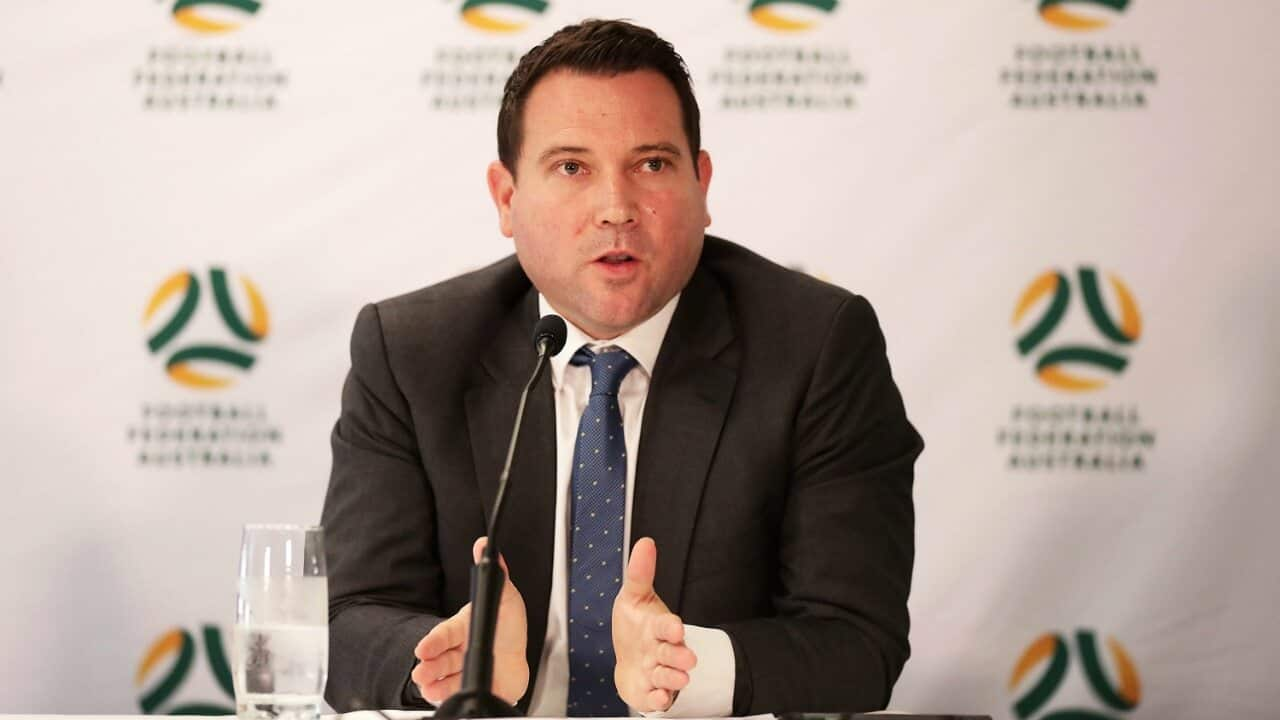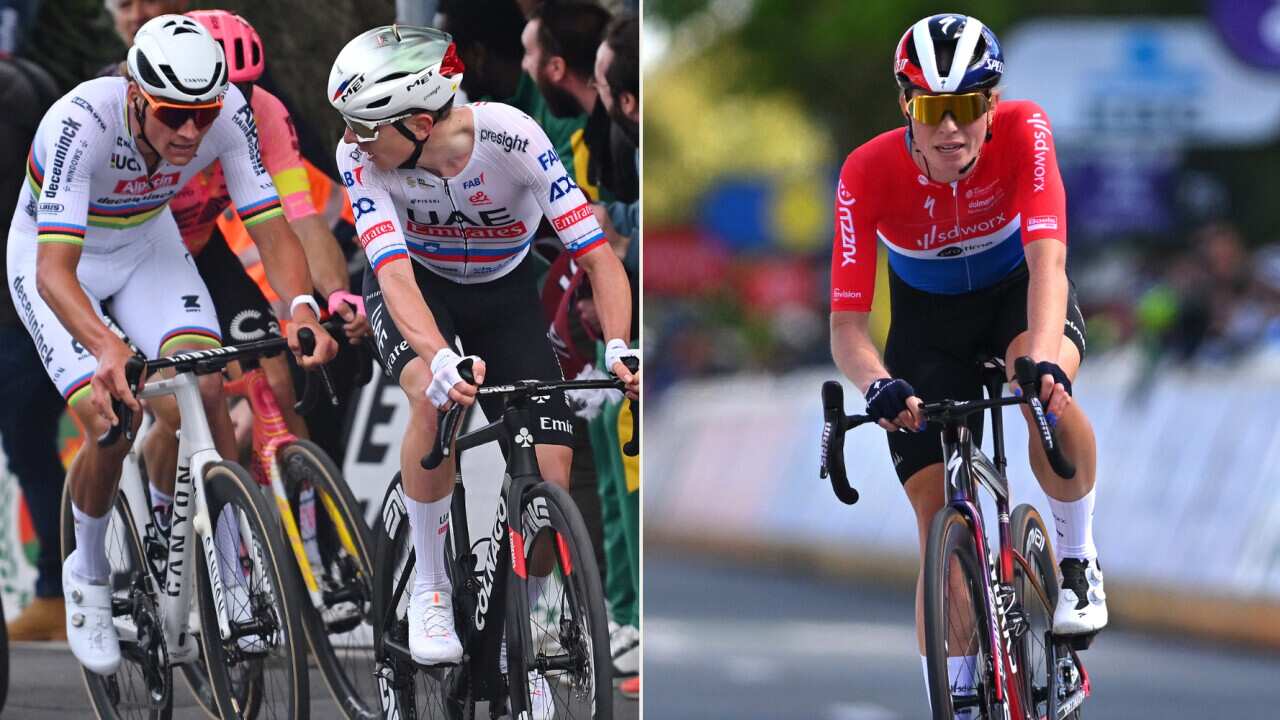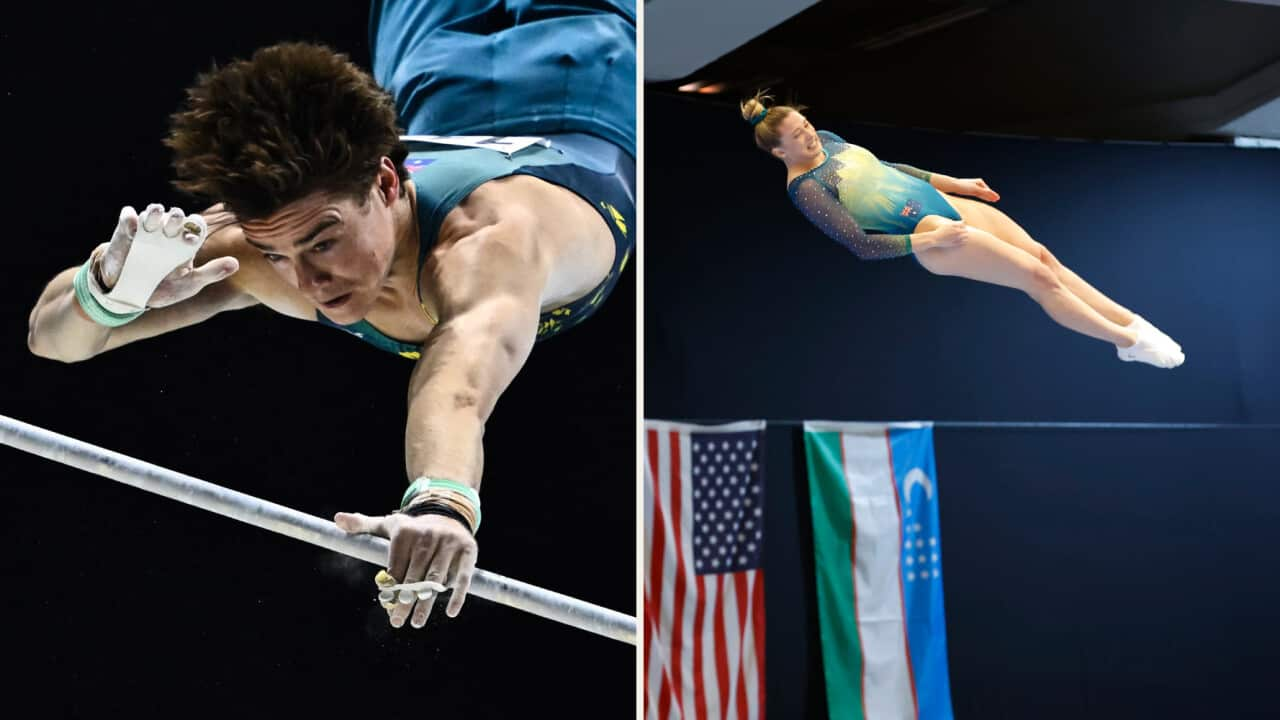From creating history at the 2015 FIFA Women’s World Cup, to achieving pay parity with the Socceroos, and securing the rights to jointly host the Women’s World Cup in 2023 - this list represents just how far we’ve come since inaugural Matildas captain Connie Byrnes donned the armband in 1978.
As a nation, we have revelled with the side when they’ve won and supported them when they’ve encountered off-field dramas, which included the unsavoury pay strike, the controversial sacking of coach Alen Stajcic and crashing out of France 2019 in the round of 16.
In the last year however, there have been more philosophical wins, both on and off the pitch, than there have been losses.
A host of talented Aussies have flooded Europe collecting accolades along the way, and with Sam Kerr winning her sixth golden boot across three continents in the Women’s Super League this week - it truly has been a magical time.
The impact of securing the Women’s World Cup in 2023 has already started to bear fruit with an official ‘Legacy 23’ plan being unveiled and financial commitments from stakeholders being pledged.
Whether it’s receiving support from the federal government or the recently announced sponsorship arrangements with Commonwealth Bank and Priceline Pharmacy - the news that millions are set to be injected into women’s football across all levels is a massive coup for lovers of the beautiful game.
Further still, in December 2020, Football Australia released the Performance Gap Report which aimed to “increase the number of players exposed to high intensity and high-performance environments to prepare them for potential inclusion in the senior national team assemblies.”
When we spoke to Matildas assistant coach Melissa Andreatta in the lead-up to the first camp, which took place in Canberra last November, she was full of praise for the initiative.
"There's a performance gap report that's indicated a need for more international minutes and quality games for our senior players and for our youth national teams,” Andreatta said.
“It's something that, as the FA, we're considering and looking at how to make possible. We've already committed to this talent ID camp, elite games and what comes in 2021, I'm sure we'll build on the platform that's already been set to reduce the performance gap."
So, with all the positivity afoot, it came as a shock when several sources confirmed that Football Australia initially had no plans to pay the players participating in the last week's Talent Identification Camp held in Sydney.
However, it's a claim that a Football Australia spokesperson denied: “This is not true! All players participating in this talent ID camp are being remunerated.”
From a Professional Footballers Australia perspective, co-chief executive Kathryn Gill revealed that conversations surrounding the non-payment of players had in fact occurred.
“Discussion regarding the nature of the assembly occurred and we were able to reach an agreement with Football Australia regarding player entitlements,” Gill said.
“If camps are to become more frequent, then we will need to work through any challenges posed and balance the needs of the players and high-performance considerations.”
Furthermore, the revelation that Canberra United forward Nickoletta Flannery had ruptured her anterior cruciate ligament whilst in the Sydney-based camp came as an additional blow and raised questions around whether she would be covered by insurance at the time.
“Nikki will be covered under the Football Australia insurance policy including income protection,” The Football Australia spokesperson confirmed.
However, had the governing body’s decision makers decided to maintain their original stance of not paying the players, it might have been a different story for Flannery.
According to , "players who accepted FA's invitation to participate in last week's camp, which was framed by the governing body as a reward for outstanding W-League seasons, were not offered national team contracts that would have guaranteed them a certain minimum payment and other protections enshrined in the CBA, including insurance against loss of income due to missing work."
Not only was the camp conducted out of season, meaning that players aren’t being paid by their respective W-League clubs, but they were also forced to pull out of their existing work and study commitments with less than a week's notice.
The mere fact that it was labelled a “Talent Identification Camp” when it included capped Matildas like Alex Chidiac, Jenna McCormick and the highly experienced Lisa De Vanna is also highly questionable and one of the main issues.
De Vanna has represented the Matildas 150 times and if the coaching staff cannot identify that the likes of she, Kyra Cooney-Cross, Polly Doran or Chidiac are worthy of a national team call-up based on the most recent W-League campaign, then there’s something fundamentally wrong with the system.
Can you imagine Graham Arnold asking Jamie Maclaren to participate in a Talent ID camp after the season he’s been having in the A-League?
Not only would it be laughable but also terribly insulting.
So then, how does a camp running across four days, with a group of experienced players, classify as “Talent Identification” and suffice the Performance Gap report's intention of creating “more international minutes and quality games for our senior players”?
I am not convinced it does and all of this is starting to sound more like a rudimentary box-ticking exercise designed to appear as though they are addressing the issues uncovered in their report.
Add to that, the fact that the players stayed in sub-par accommodation and the coaching staff were almost forced to find alternative arrangements after Football NSW were reluctant to provide the appropriate pitches, and we’re being plunged straight back into the dark ages.
When pressed about the classification of the camp and why we don’t see similar camps formed for the Socceroos, Football Australia were unable to shed any light.
In addition to that, when questioned about how the funding from both Commonwealth Bank and Priceline Pharmacy was being dispersed across the women’s game, only the following was provided.
"Following the publishing of the women’s Performance Gap report in December 2020, Football Australia has instituted initiatives to address the findings in relation to the development of future players," Football Australia said.
"These initiatives have included Elite Matches for the Westfield Junior Matildas and Westfield Young Matildas, as well as the women’s talent ID camps.
"Since their introduction, over 120 players have been invited to participate and have had the ability to engage, interact and be assessed in a high-performance environment, as well as female coaches provided with the professional development opportunities.
"As underpinning initiatives for the senior women’s national team, they are designed to increase the number of players exposed to high intensity and high-performance environments to prepare them for potential inclusion in the senior national team assemblies.
"These initiatives are not substitute for Westfield Matildas assemblies as conducted during FIFA windows.
"This was an underpinning talent ID camp which involved Westfield Junior Matildas and Westfield Young Matildas and players identified off the back of strong performances in the Westfield W-League."
If you want to address the performance gap issues and create more match minutes for players at the professional level, you need to start by introducing more W-League teams into the competition, extend the season, and ensure that all W-League clubs have academies.
What also needs to be explored is the viability of the current women’s football infrastructure.
For example, is it worth asking parents to pay over a thousand dollars for their children to play for the Football NSW Institute when many of these talented footballers could be re-dispersed among W-League and National Premier League clubs and receive a wage instead?
So many questions, so few answers.
Since Football Australia CEO James Johnson came on board, the governing body have moved swiftly to try and distance themselves from the previous regime and rebrand their modus operandi.
A name change, endless reports and the release of the Starting XI Principles - which, let's be frank, are almost a carbon copy of the Whole of Football Plan released in 2015 - can only do so much.
This latest misstep with respect to player remuneration, coupled with their attempts to champion women’s equality, are a complete contradiction and shouldn't sit well with anyone.
To their credit, Football Australia corrected their mistake but only after they were strong-armed and if they don’t want to be tarred with the same brush as their predecessors, then it’s time to start living up to their own policies and principles.










